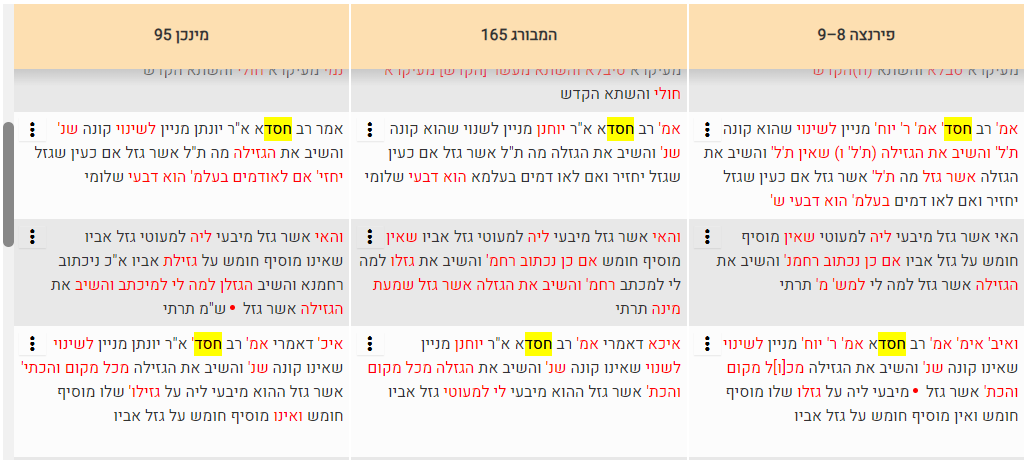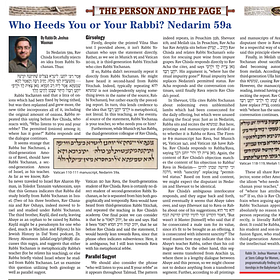Rav Chisda cites Rabbi Yonatan
(not Rabbi Yochanan)
In yesterday’s daf, Bava Kamma 67a, Rav Chisda cited Rabbi Yonatan.
אָמַר רַב חִסְדָּא אָמַר רַבִּי יוֹנָתָן: מִנַּיִין לְשִׁנּוּי שֶׁהוּא קוֹנֶה? שֶׁנֶּאֱמַר: ״וְהֵשִׁיב אֶת הַגְּזֵלָה״ – מָה תַּלְמוּד לוֹמַר ״אֲשֶׁר גָּזָל״? אִם כְּעֵין שֶׁגָּזַל – יַחֲזִיר, וְאִם לָאו – דָּמִים בְּעָלְמָא בָּעֵי שַׁלּוֹמֵי.
Rav Ḥisda says that Rabbi Yonatan says: From where is it derived that a change in a stolen item causes the thief to acquire it? As it is stated: “And he shall return the stolen item that he took by robbery” (Leviticus 5:23). What is the meaning when the verse states the seemingly superfluous phrase “that he took by robbery”? It teaches that only if the item is in the same state as when he took it by robbery it he must return it. But if not, he is required to pay only money; the stolen item remains his to keep.
I was following along on Hachi Garsinan and saw that some other manuscripts have him cite Rabbi Yochanan. Thus, Florence and Hamburg, but not Munich:
and Escorial but not Munich.
We might imagine that he never cited R’ Yonatan, but that it is a corruption / reduplication of the following word מניין. But if it is a choice between Yochanan and Yonatan, Yonatan is the far better choice, being the less famous Amora.
In terms of Yonatan / Yochanan alternation, I’ve written about how one of the Talmud’s redactors, Rav Chaviva, substituted one for the other throughout Moed. (The punctuation is misunderstood by Rishonim, who don’t recognize the large gap in scholastic generations between Rav Chaviva and the others.)
Rav Chaviva the Redactor (full article)
The following is an old article, from July 2021, but I wanted to park it on Scribal Error, and then refer to it as needed. Rav Chaviva’s identity is important. I have a post tomorrow that deals with Rav Chaviva. You can also read it on the Jewish Link website (
Also related is whether Rav Chisda could conceivably cite Rabbi Yochanan, when he somewhat disrespectfully says “who heeds you or your master” in relationship to Rabbi Yochanan. Thus, we should follow girsaot which omit the citation, or else have him cite Rabbi Yonatan. See this article:
Who heeds you or your rabbi?
This post is essentially identical to my Link column this past week, because I composed it here. You can read it nicely formatted there, though hyperlinks are only available on Substack. In Nedarim 59a, Rav Chisda forcefully rejects an idea from Rabbi Yochanan. Thus:
and its followup:
Rav Chisda and Rabbi Yochanan Redux
My recent Jewish Link Expanded Edition article covered two separate topics. Scribal Error is a reader-supported publication. To receive new posts and support my work, consider becoming a free or paid subscriber. The first was centered on this diagram, and how the gemara structured the derashot of Rabbi Yishmael’s academy vs. the derashot of Rava.





